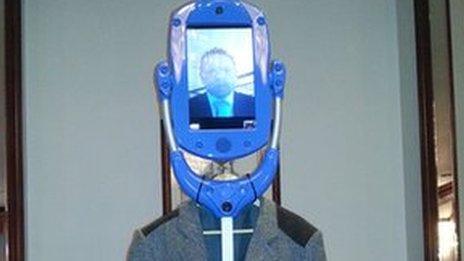Scottish health boards soon to reveal robot trial results
- Published
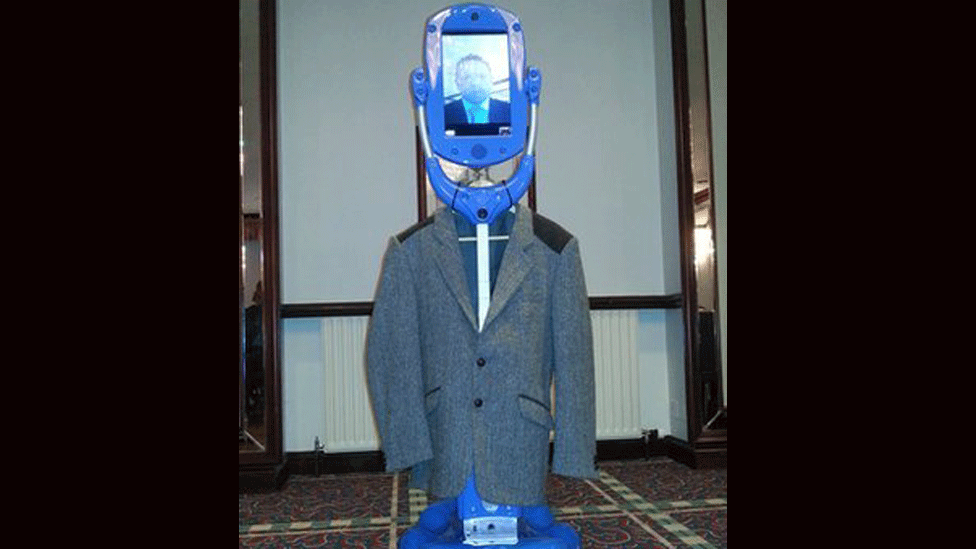
The robot offers the chance for carers and relatives to communicate with a patient
How successful robots have been in providing care and assistance to patients is expected to be revealed within the next two months.
NHS Western Isles and NHS Shetland have been trialling the use of a robot called Giraff in patients' homes.
Giraff stands 1.5m (4ft 11in) tall, has wheels and a screen instead of a head.
A relative or carer - potentially miles away - can drive the machine around the house to check that everything is all right.
Carers and patients can also have a chat through a two-way video call system fitted to Giraff.
A spokeswoman for NHS Western Isles said: "NHS Western Isles continues to progress in partnership a number of assistive technologies to support individuals in their own homes.
"The Giraff has undergone trial periods both here in the Western Isles and in Shetland.
"We are expecting the evaluation from Shetland shortly.
"The Giraff is but one of many technologies we are exploring and can deploy, and plan to share the fuller range at an event in Stornoway within the next two months."
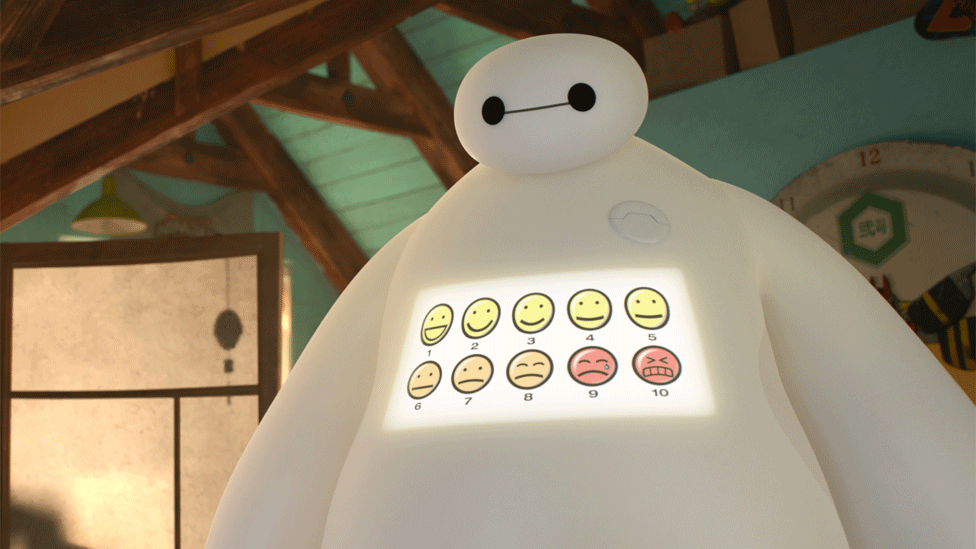
Personal healthcare robots as portrayed in film are not far from becoming a reality, according to one expert
The spokeswoman added: "The use of assistive technology is to some extent a bespoke development centred on the needs of each individual, and. as such, the Giraff would have a specific rather than a generic application."
NHS Western Isles has previously said it planned to investigate the benefits the robots could bring for people with dementia.
Personal healthcare robots such as Baymax in Disney animation Big Hero 6 may not be far from becoming reality, a Scottish university suggested last year.
In the film's futuristic world, Baymax is a robot with a soft synthetic skin who can detect medical conditions.
The University of the Highlands and Islands suggested a new era of smart healthcare devices could be imminent.
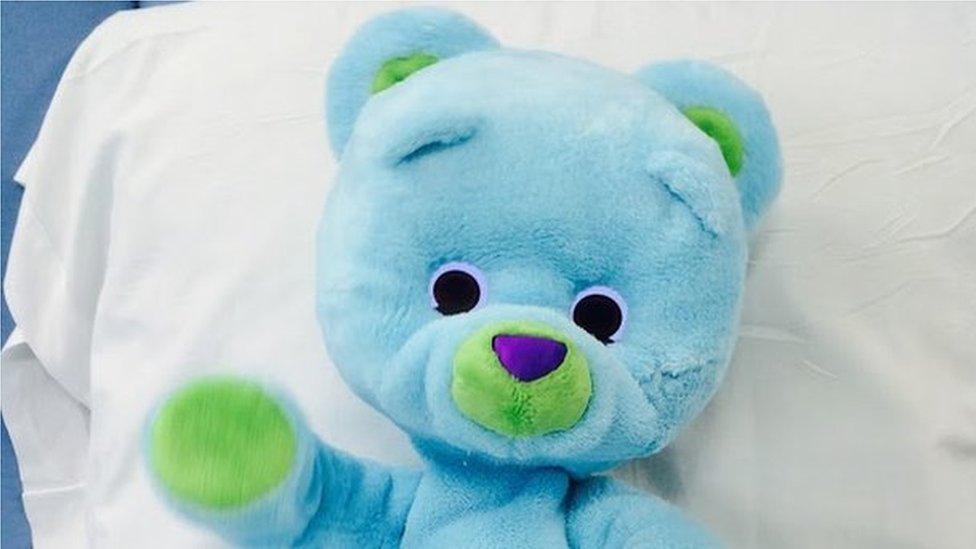
US-made childcare robot Huggable has links to the Highlands and Islands
The Highlands and Islands has previous form for exploring the use of smart technologies and robots in healthcare.
Early versions of a robot teddy bear now being put through its paces in a children's hospital in the US were tested in the Highlands.
An updated version of the bear has been fitted with pressure sensors on two of its paws and several touch sensors throughout its body parts.
The screen of the smart phone device in the robot's head shows animated eyes and the robot can use the phone's internal speaker, microphone and camera for sensing changes in a child's wellbeing.
The early prototype of Huggable was brought to Scotland by MIT Media Lab in a project supported by Highlands and Islands Enterprise (HIE).
The UHI Millennium Institute - now the University of the Highlands and Islands - was also involved.
- Published12 March 2015

- Published29 October 2014
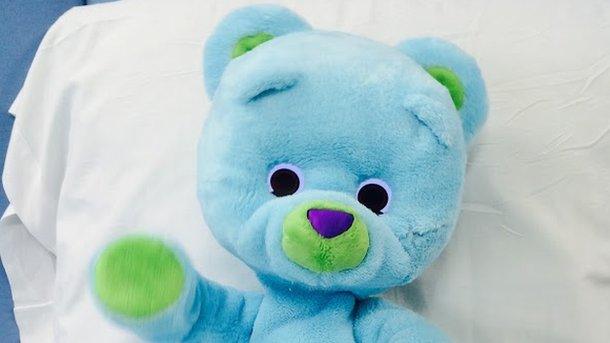
- Published5 July 2013
